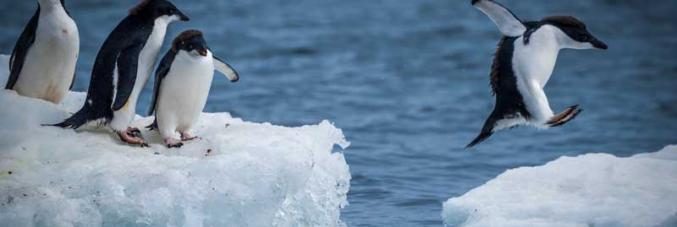
Unipd Participates in the New EU Project WOBEC Project Determining How the Decrease in Sea Ice Affects Biodiversity
12.06.2024
The depths of the Weddell Sea are home to diverse biotic communities that have adapted to its cold waters including sponges, corals, and countless other organisms. As climate change progresses, this ice-laden region could provide a refuge for ice-dependent algae and fauna, from krill to Weddell seals.
As part of the new European Union project “Weddell Sea Observatory of Biodiversity and Ecosystem Change” (WOBEC), the Alfred Wegener Institute, as coordinator of a consortium of eleven European and US institutions, thus includes the Department of Biology of the University of Padua, will lay the foundations for long-term systematic observations of potential changes in this unique ecosystem. The project, which has obtained funding of around 1.9 million euros and will be based on the latest scientific discoveries, will develop a strategy to monitor changes in the Weddell Sea, a region nominated as a marine protected area on a proposal by the EU and of other states. The kick-off meeting of the WOBEC project takes place in Bremerhaven from 11 to 14 June.
The Weddell Sea is the largest marginal sea in the Southern Ocean that holds a rich biodiversity. Here, seals and emperor penguins give birth to their young, while krill feeds on microalgae under the ice floes attracting fish, whales, and sea birds. Millions of icefish, fish without hemoglobin, reproduce on the seabed, surrounded by underwater gardens of glass sponges, anemones, and sea snails. Some of these places reach a level of biodiversity comparable to that of tropical coral reefs.
Eleven institutes from eight countries have joined the WOBEC project, over the next three years, participating researchers will determine the state of the biotic community of the Weddell Sea, establishing an initial reference scenario for long-term monitoring of the ecosystem in the Ocean Southern Italy in transformation. The WOBEC is one of 33 projects of the important European Union program BiodivMon, under the support of Biodiversa+, the European partnership for biodiversity. The project kicked off in April 2024 with a meeting in Tallinn, Estonia. The project partners were allocated a budget of approximately 1.9 million euros in financial support.
The Unipd Department of Biology team, coordinated by Prof Chiara Papetti, includes Isabella Moro, Alessandro Vezzi, Luca Schiavon, Federica Stranci, Alessia Prestanti, receives support from the Ministry of University Research (MUR) with almost 200,000 euros.
“We expect that due to their peculiar adaptations to the polar environment and life cycles, Antarctic fish are closely linked to other numerous components of the Antarctic marine community. Such species offer indicators of the changes in the abundance and distribution of biodiversity in the Weddell Sea," adds Prof Chiara Papetti who, with her collaborators, studies the connection between populations of Antarctic fish in the Southern Ocean.



